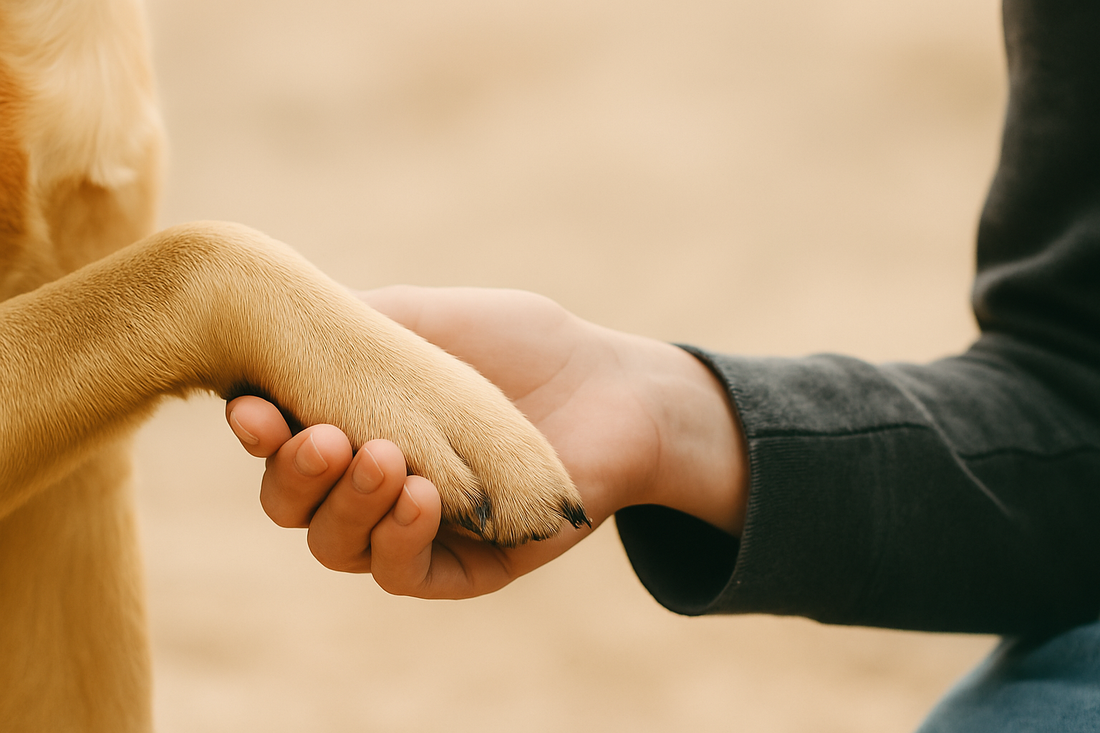
Healing from Loss: A Pet Owner’s Guide to Grief
Share
Introduction
They were more than “just a pet.” They were your shadow, your snuggle buddy, your reason to smile every day. So when they’re gone, everything feels… off. The silence is loud. The empty bed is a punch to the gut. Pet loss hits hard—often as hard as losing a person.
Whether it was sudden or expected, the grief is real. And yet, many of us feel we need to “get over it” quickly. That’s not just unfair—it’s damaging. In this blog, we’ll walk through the truth about grieving a pet, ways to honor their memory, and how to give yourself the space to heal, one gentle step at a time.
Why Pet Grief Feels So Overwhelming
Grieving a pet isn’t just about losing a companion—it’s losing a part of your daily life, your routine, your identity. Pets offer unconditional love. They don’t care about your bad hair days or your flaws. They were there on your worst days and your best. When that presence is suddenly gone, it leaves a deep emotional void.
What makes it harder is that pet loss isn't always understood by others. Friends might say, “You’ll get another dog” or “It’s not the same as losing a person.” But for many, it is that significant. Grief isn’t a competition, and your pain is valid.
Common Reactions to Pet Loss
- Intense sadness or depression
- Guilt (“Did I do enough?”)
- Anger (at vets, yourself, fate)
- Loneliness
- Physical symptoms like fatigue or changes in appetite
These are normal responses. You’re not broken. You’re grieving. As we shared in How Do You Honor a Deceased Pet?, grief takes many forms and honoring the bond you shared is part of the healing process.
Let Yourself Grieve – Without a Timeline
There’s no “normal” amount of time to grieve a pet. It might take weeks, months, or years. Some find peace quickly, others don’t. Avoid judging yourself—or letting others do it. The timeline belongs to you alone.
Tips to Navigate Grief
- Talk about your pet. Say their name. Share their story. Don’t bottle it up.
- Cry if you need to. Tears are healing; they release emotional energy.
- Write them a letter. Express everything you didn’t get to say.
- Keep a routine. Stability provides a gentle anchor during chaos.
- Seek support. Pet loss support groups online or in person can be a lifeline.
Healing Rituals to Honor Their Memory
Creating rituals around your pet’s life and passing can bring comfort. These don’t need to be elaborate. The goal is to honor your bond and keep their memory alive in ways that feel authentic.
Meaningful Memorial Ideas
- Create a photo book or scrapbook of favorite moments.
- Plant a tree or flower in their honor.
- Light a candle on their birthday or “gotcha” day.
- Write a poem or short story about them.
- Keep their tag or collar in a shadow box.
- Display a custom portrait or memorial stone.
Many families also find comfort in spiritual traditions, such as the concept of the “Rainbow Bridge.” Others choose practical memorials that double as art. For inspiration, you can explore our guide on Pet Remembrance Ideas, which offers creative and heartfelt options for honoring your furry friend.
Helping Kids Process Pet Loss
Children often struggle with pet loss in unique ways, since pets are often their first experience with death. Supporting them gently helps build resilience and compassion.
Tips to Support Kids
- Be honest but gentle. Use age-appropriate language like “died” instead of “went to sleep.”
- Let them express feelings through drawings, stories, or play.
- Involve them in memorial rituals to provide closure.
- Don’t rush to replace the pet—give them time to grieve.
Children’s books such as The Tenth Good Thing About Barney or Dog Heaven can also help them understand and express their feelings. Including them in the healing process not only comforts them but strengthens family bonds.
What About Getting Another Pet?
There’s no right answer here. Some people adopt right away. Others need months or years. Some never do. Don’t let guilt cloud your decision. The choice should be based on emotional readiness, not pressure.
Guidelines for Adoption After Loss
- It doesn’t mean you’re “replacing” them.
- It’s not disrespectful—it honors the love you had.
- Every pet is unique; there will never be another them.
As we noted in Choosing the Right Pet Sympathy Gifts, honoring a lost companion can take many forms, and one of them may eventually be opening your heart to another animal. But it should happen on your timeline, not anyone else’s.
When Grief Feels Too Heavy
If your grief becomes debilitating—affecting your work, sleep, or mental health—it’s okay to seek professional help. Therapists, especially those who specialize in pet loss counseling, can guide you through complex emotions and help you navigate the journey.
You are not weak for needing help. In fact, reaching out is an act of courage. It acknowledges your pain and invites healing.
Conclusion
Losing a pet leaves paw prints on your heart—and those don’t fade easily. But healing is possible. By giving yourself permission to grieve, honoring their memory, and leaning into love instead of guilt, you can find peace—one breath at a time.
You loved them deeply. You still do. That love doesn’t die—it simply changes shape.
If you’re looking for a way to remember your furry friend, explore our Pet Memorial Collection. From personalized keepsakes to custom portraits, each piece is designed to honor their memory with love and grace.
